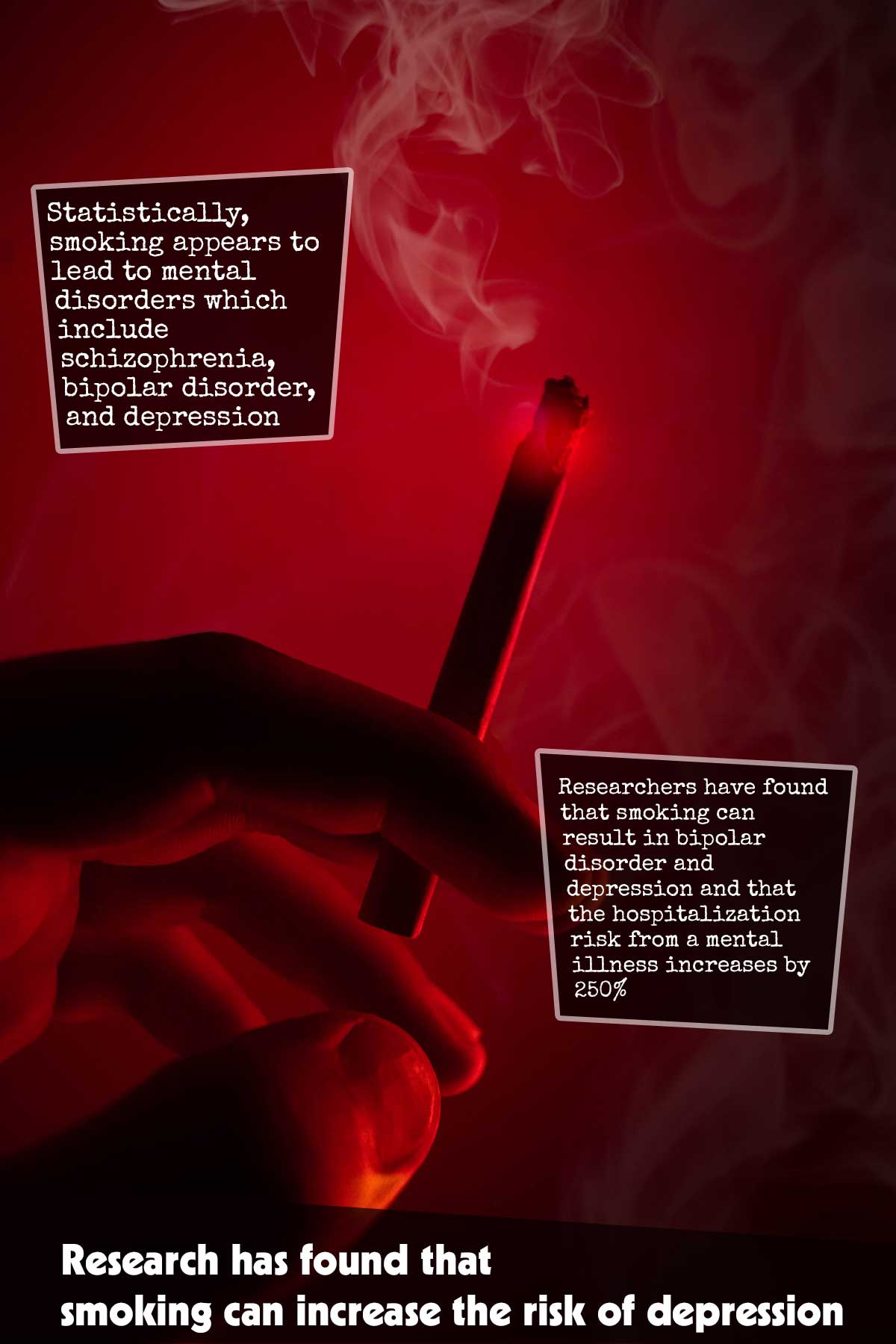Researchers have found that smoking can result in bipolar disorder and depression and that the hospitalization risk from a mental illness increases by 250%.
The researchers used data from the UK Biobank, a large health information database, which includes genetic data on over 500,000 individuals. The genetic data was matched with lots of other health information provided by the study participants.
Individuals generally start smoking before 20 years old but aren’t diagnosed with a mental disorder until they’re an average of between 30 and 60 years old.
Individuals started smoking at 17 years old on average, while they were generally not hospitalized with a mental disorder till after 30 years old.
Up to 90% of the individuals who were former smokers or still smoking started before 20 years old. The chances that an individual will start smoking at a later age are thus quite small. The genes help in determining if an individual will be a smoker or not.
When looking at the numerous smokers in the database, several recurring genetic variants were found. By taking a look at studies in which twins had the same genes but were raised in separate households, it could be seen that their genes could account for 43% of the risk of being a smoker.
In the households where the adopting parents were also smokers, there was an increased risk of the twin starting to smoke. If the parents weren’t smokers, the risk was however lower, but still higher when the ‘real’ parents smoked and passed on specific genes.
Several genetic variants can be referred to as ‘smoking-related genes’. The individuals carrying the smoking-related genes who didn’t smoke had a lower risk of mental disorders in comparison to individuals carrying the genes who smoked.
This was a bit vague before because the genetic variants appear to be associated with mental illness risk as well, but this study demonstrated that it’s likely that the risk of beginning to smoke leads to an increase in the risk of mental disorders as a result of ‘smoking-related genes’.
Statistically, smoking appears to lead to mental disorders which include schizophrenia, bipolar disorder, and depression. The researchers however cannot explain why, they just have some theories.
The biological mechanism of the smoking and mental disorder association still needs to be explored. One theory is that absorption of the brain’s neurotransmitter serotonin is inhibited by nicotine, and it’s known that insufficient serotonin is produced by individuals with depression.
The brain’s serotonin production is activated by nicotine when an individual smokes a single cigarette, which gives a relaxed feeling after smoking. However, nicotine will have the opposite effect if a person continues smoking. It will instead inhibit the serotonin, which can make a person unstable, upset, and anxious.
Another theory is that smoking leads to inflammation in the brain, which can eventually damage areas of the brain and result in different mental disorders.
